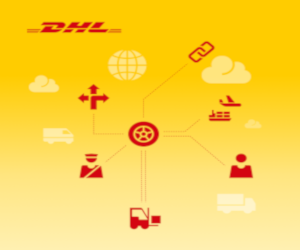Transportation Management System (TMS) definition.
A transportation management system, or “TMS,” is a platform that’s designed to streamline the shipping process. It is a subset of supply chain management concerning transportation solutions. A TMS allows shippers to automate the processes they have in place and receive valuable insights to save time and reduce spend on future shipments.
Distribution companies, e-commerce organizations and anyone else that moves freight on a regular basis realizes there are many moving parts to the shipping process, both literally and figuratively. From quoting to delivery, those shipping freight are almost always looking for ways to optimize spend and improve processes. Thanks to transportation management systems (TMS), shippers have a solution on their side to do just that.
Benefits of TMS.
- Technological Capabilities: With a transportation management system, you as the shipper will have the technology you need to make routing decisions based on quotes, transit time and carrier mix. This centralized location for quoting will eliminate unnecessary stress and time spent during the booking process.
- Simplify Processes: A TMS can help to simplify the carrier selection process by allowing you to evaluate the merchandise being sent and matching it with a carrier in the network. By managing this entire process in one place, you will be able to revisit past shipments and quickly match similar loads to the appropriate carriers.
- Track Freight: With a TMS, you can track freight that’s on the road and even receive alerts to any transit exceptions or unforeseen delays from one location. It’s impossible to control human error or Mother Nature, however, a TMS will let you see when delays are occurring and why.
- Business Insights: Robust transportation management systems will offer you in-depth insights and reporting capabilities. For example, let’s say you oversee the shipping process for 20 locations that each send five shipments out a week. That’s 100 shipping invoices to create and shipments to evaluate each week. With a TMS, information will all be stored in one location and custom reports can be created to analyze things like the discrepancies between rates and final invoices.
Types of TMS.
There are many types of TMS to use in your daily shipping processes. However, at Freightquote by C.H. Robinson we rely on our Enterprise Transportation Management System and team of industry experts. Enterprise TMS allows you to automate your current shipping process while gaining valuable insights that save you time and money. Enterprise is ideal for large shippers who need customized solutions such as dedicated account managers customer specific pricing, and more.
TMS Challenges.
- Keeping Quotes Organized. If you’re working with a number of different shipments, you don’t want to be on the phone or jumping from website to website asking for rates from the carriers in your network. Dialing different carriers and requesting quotes can be a time-consuming process, taking you away from other aspects of the business that need attention.
- Selecting the Best Carrier. Not all shipments are the same. Sometimes, shipments are time or temperature sensitive, require special delivery services or need to be handled with extreme care. As a result, not all shipments should be handled by a single carrier. While some carriers might be best-suited to handle long hauls, others might offer the specialized services you need for a small added price.
- Tracking Shipments. Businesses don’t always use the same carriers for all their freight. It’s common for a number of different shipments to be in transit aboard different company trucks all over the map. Consequently, the freight tracking process can become very challenging. Without a TMS, you or someone within your organization may have to enter shipment numbers into forms on a number of different carrier sites.
- Gathering Insights. Without a TMS in place, you may have a general gut feeling of who the cheapest carrier has been over the past year, or which carrier had the highest percentage of on-time shipments. However, without technology on your side, it’s hard to know for certain.
Common TMS Questions.
- What is a TMS’ role in supply chain management? Supply chain management is primarily focused on purchasing, manufacturing, and transport. A TMS assists with the transportation logistics within the supply chain management of an organization.
- What is a freight management system? A freight management system (FMS) is a third-party logistics company that provides transportation, warehousing, and fulfillment for their customers. Outsourcing freight is becoming increasingly common and affordable.
- What does transportation management technology do? TMS technology assists in the planning and coordination of shipping, tracking, and delivering freight from one place to another. It also tracks processes and delivers customized shipping solutions that save time and money.



